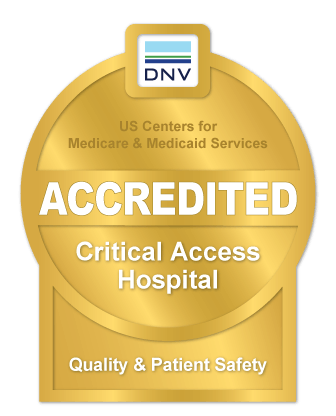Diabetes is a chronic (long-lasting) health condition that affects how your body turns food into energy. If you have diabetes, your body either doesn’t make enough insulin or can’t use the insulin it makes as well as it should. When there isn’t enough insulin or cells stop responding to insulin, too much blood sugar stays in your bloodstream. {Source: CDC}
Diabetes Education

At Clarinda Regional Health Center (CRHC) our Diabetes Care team wants to ensure you are able to live your life to the fullest, regardless of if you have recently been diagnosed with Diabetes or have lived with it for a while. We have a highly trained team that is recognized by the American Diabetes Association as a provider of Diabetes Self-Management Education and support services. Our team includes Becki Franks, RN, CDCES, Certified Diabetes Care and Education Specialist.
To learn more about CRHC’s Diabetic Education or affiliated dietitian programs contact:
Becki Franks at (712) 542-8263
Melisa Baier at
(712) 542-8303

What is Diabetes?
Types of Diabetes
► Type 1 Diabetes: Commonly referred to as "childhood diabetes" because it is typically diagnosed early in childhood, teens or early adulthood. It is believed that this happens because of an autoimmune reaction where the body attacks itself by mistake and stops your body from making insulin.
► Type 2 Diabetes: This type of diabetes is when your body doesn't use insulin well and cannot keep blood sugars at a normal level. It typically develops over many years and is usually diagnosed in adults, but more and more teens and young adults are being diagnosed. This type can be prevented or delayed with healthy lifestyle changes.
► Prediabetes: With prediabetes, blood sugar levels are higher than normal, but not high enough yet to be diagnosed with type 2 diabetes. Prediabetes raises your risk for type 2 diabetes, heart disease, and stroke. If you have prediabetes you can take healthy steps towards reversing it.
► Gestational Diabetes: This type develops in pregnant women who have never had diabetes prior to pregnancy. This puts your baby at a higher risk for health problems. Typically this type of diabetes goes away after your baby is born, but increases your risk for type 2 later in life.
Patient Resources
Introduction to Strength Easy Workout Tips
Diabetes Education & Support Class information - coming soon!












